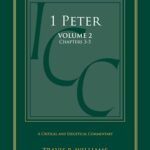Ministry Advice from a Dead Guy
In recent months, I’ve written about marriage, parenting, and financial advice “from a dead guy” (i.e., John Chrysostom, c. 347–407). In recounting this advice, I’m not suggesting that Chrysostom was always correct or that his advice should necessarily be followed in every detail in the 21st century. Rather, I simply think it is helpful for present-day believers to hear and consider the ideas of a faithful pastor who loved Christ while living in a very different time and place.
During his years of pastoral ministry in Antioch, Chrysostom wrote a book titled On the Priesthood (c. 381–c. 386). In this work, he discussed the difficulties of pastoral work but also stressed its importance and rewards. Chrysostom entered pastoral work with some fear and trepidation. But having assumed the pastoral office, he took the task seriously and poured himself into the work of ministry. As Chrysostom wrote about the nature of pastoral ministry, several themes rose to the fore.
The Importance of Caring for Christ’s Sheep
While discussing Peter’s post-resurrection encounter with Christ (John 21:15–23), Chrysostom used an analogy to describe the importance of shepherding Christ’s sheep. He explained that when we see someone else show great care for something that is ours, we view that care shown for our property as an indication of their love for us. Similarly, if Christ died to save his sheep and make them his own, those who are responsible for caring for those sheep on earth should show great care for their spiritual welfare. Such ministry demonstrates our love for Christ. Such labor also leads to great reward. As Chrysostom put it, “A great, indescribable reward will be in store for the man who works hard at the tasks which Christ values so highly” (On the Priesthood 2.1).
The Need to Fear God More Than Men
Chrysostom did not pull any punches in describing the difficulties of ministry. He consistently emphasized the need to serve Christ rather than men and the need to fear God more than men. He explained, “We must not mind insulting men, if by respecting them we offend God” (On the Priesthood 2.7). He viewed insults received in the course of ministry to be of little importance. What matters most is pleasing the one we ultimately serve. Chrysostom himself was willing to speak the truth even at the risk of offending people in positions of great power (e.g., the empress in Constantinople).
The Qualifications of a Pastor
On several occasions, Chrysostom discussed the qualifications of a pastor. For example, he noted the need for a pastor to be blameless. This is so, in part, because “The priest’s shortcomings simply cannot be concealed. On the contrary, even the most trivial soon get known” (On the Priesthood 3.14). For this reason, one must carefully examine the character of a potential shepherd. He explained, “If someone is about to present another man as fit for the priestly office, he must not be content merely with popular report, but in addition to this he ought, beyond and before all else, to examine that man’s character himself” (On the Priesthood 2.4).
In a sermon on 1 Timothy 3, Chrysostom addressed the desire to be a pastor and the qualifications one must meet in order to assume the office. Then, having discussed these qualifications, Chrysostom drew this conclusion:
Let us then so live, that the name of God be not blasphemed. Let us not, on the one hand, look to human reputation; nor on the other, subject ourselves to an evil report…. He left us here, that we may be as luminaries, that we may be appointed Teachers of others, that we may be as leaven; that we may converse as angels among men, as men with children, as spiritual with natural men, that they may profit by us, that we may be as seed, and may bring forth much fruit.
(Homily on 1 Timothy 3:1–4, NPNF1 13:440)
Chrysostom was a bold and faithful servant of Christ. Though we live in a very different context, there is still much to be learned from his ministry.



